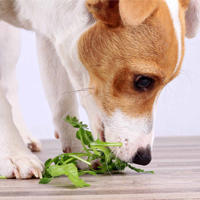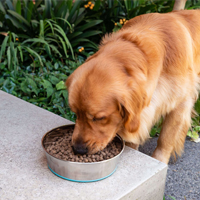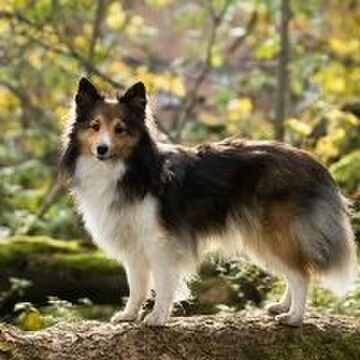
Chickweed benefits for dogs
Chickweed is an herbal option for dogs that offers sufficient amounts of calcium, ascorbic acid, beta carotene, flavonoids, potassium, niacin, magnesium, and zinc among other goodies.
This concentration of medicinal and herbal properties makes it a versatile and safe option for dogs.
How to Use Chickweed for Your Dog
This herb has several potential applications because of its high concentration of health properties. It can be used to treat anything from constipation to itchiness and it can be made into everything from a tea to a salve.
- Quick relief for Hot Spots & Skin Irritation: Chickweed has calming properties that make it an effective remedy for burns and skin irritations. A poultice using chickweed can help soothe your dog’s skin and deliver quick relief for hot spots. The poultice can be made by chopping fresh chickweed and applying it directly to the problem area. You can also wrap the chickweed in clean gauze if that is your preference. The chickweed poultice can be made using the leaves, flowers and stems. Due to the cooling properties of this herb, it makes an excellent alternative to calendula in the summer.
- Chickweed Tea: Chickweed can be used internally as a remedy for gastrointestinal irritation. This is best done using a tea, which can be made using one tablespoon of the dried herb OR two tablespoons of the fresh herb along with one cup of boiling water. The tea should sit for 10 minutes before use and can be provided in half-cup doses two to four times daily. Large doses of chickweed can have a laxative effect, so keep this in mind before administering it to your pet.
- Chickweed Tincture: Chickweed can be used as a rejuvenator of sorts for the skin. It has internal applications as a demulcent and can be used externally as an emollient, as we’ve discussed. It can also be used as an astringent and can draw out things like splinters. Use a little fresh juice from the stems on a swab or put together a diluted tincture and you’ll love the results. Because of its nutritional properties, chickweed will also help heal the wound.
- Chickweed helps in water retention: Chickweed can also be used as a diuretic. It can restock your dog with a pile of nutrients, as detailed above, and flushes out water weight from stowed deposits. If your pet struggles with water retention, this is one herb you’ll want to include in your toolkit. The tea is a great fix here, as it can be digested well and has a good flavor.
Preventative Measures
In rare cases, chickweed can cause allergic reactions. For this reason, it’s important to try a small amount externally before applying a full poultice. Chickweed contains saponins, which can lead to upset stomachs in some dogs. Chickweed can be taken in moderation to circumvent the large quantities commonly associated with more noteworthy stomach issues.
Overuse of chickweed can also have a laxative effect in dogs. Using a small amount should determine whether such results will occur. It’s usually a good rule of thumb to exercise caution when utilizing all herbal treatments and the case of chickweed is no different.
Reasons to Use Chickweed for dogs
Chickweed’s applications are considerable and its use as an edible herb makes it a desirable product on several levels. Because it tastes good and packs so many nutrients, using this plant is easy. It can be used internally and externally and treats everything from skin burns to digestive maladies.
We recommend chickweed for dogs as a diuretic and as a treatment for skin problems. It’s also useful for soothing the gastrointestinal system, plus its cooling properties are renowned. It’s a comparatively safe herb to use and has nominal side effects, but some dogs may present allergic reactions in rare cases.
More About Chickweed
Chickweed for dogs, also known as Stellaria media, chickweed is an annual flowering plant in the carnation family that can be very helpful for your dog.
Native to Europe, chickweed can also be found in parts of North America and has several applications for humans and animals.
Chickweed is commonly found in gardens and fields. It grows as ground cover and is an annual plant known for its slender stems. It features oval leaves and hair on just one side of the stem, with small white flowers. Stellaria media is an edible plant and many people use it as part of a salad. There are also folk medicine remedies associated with chickweed.
References: Herbs for Pets by M.L. Wulff-Tilford and G.L. Tilford, Natural Remedies for Dogs and Cats by CJ Puotinen










